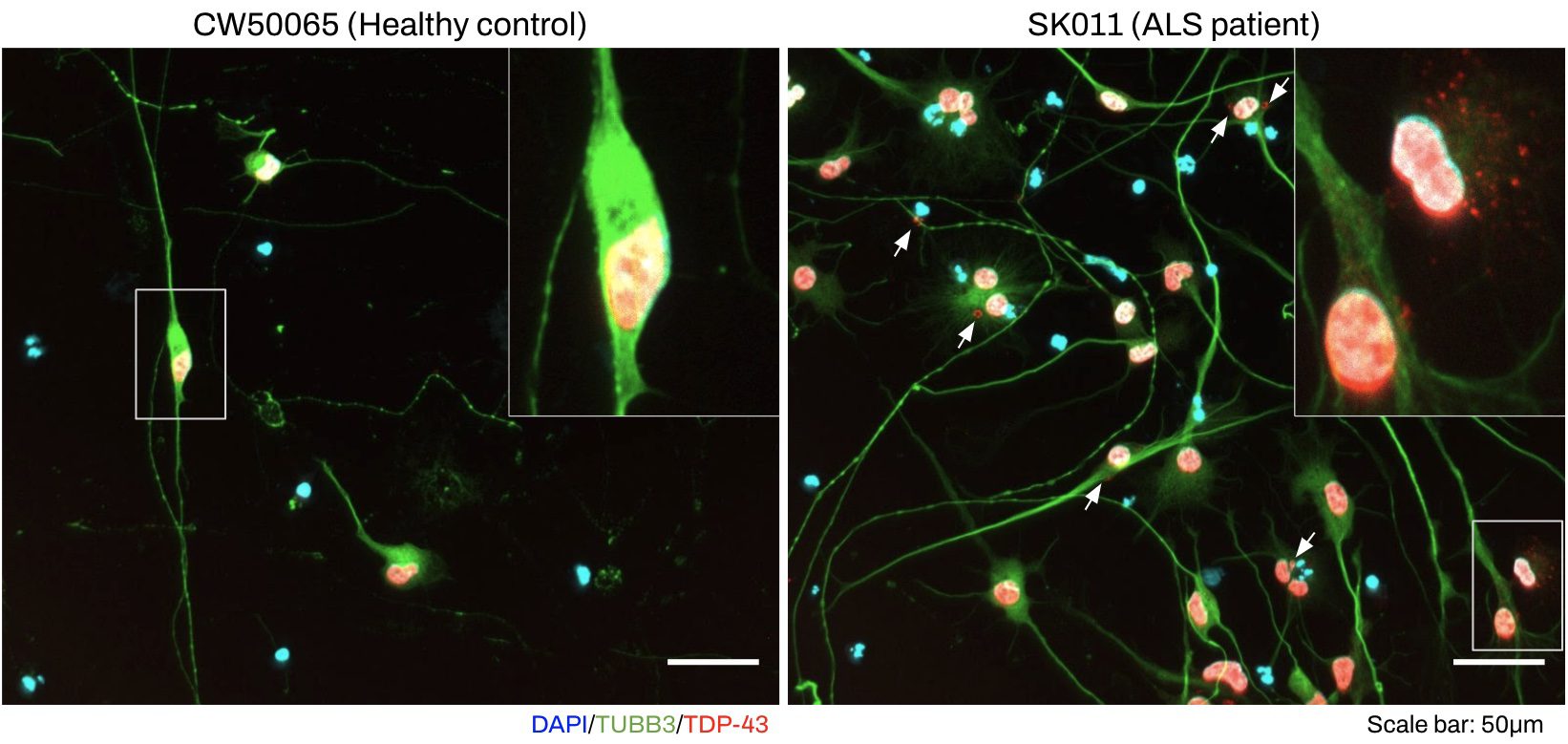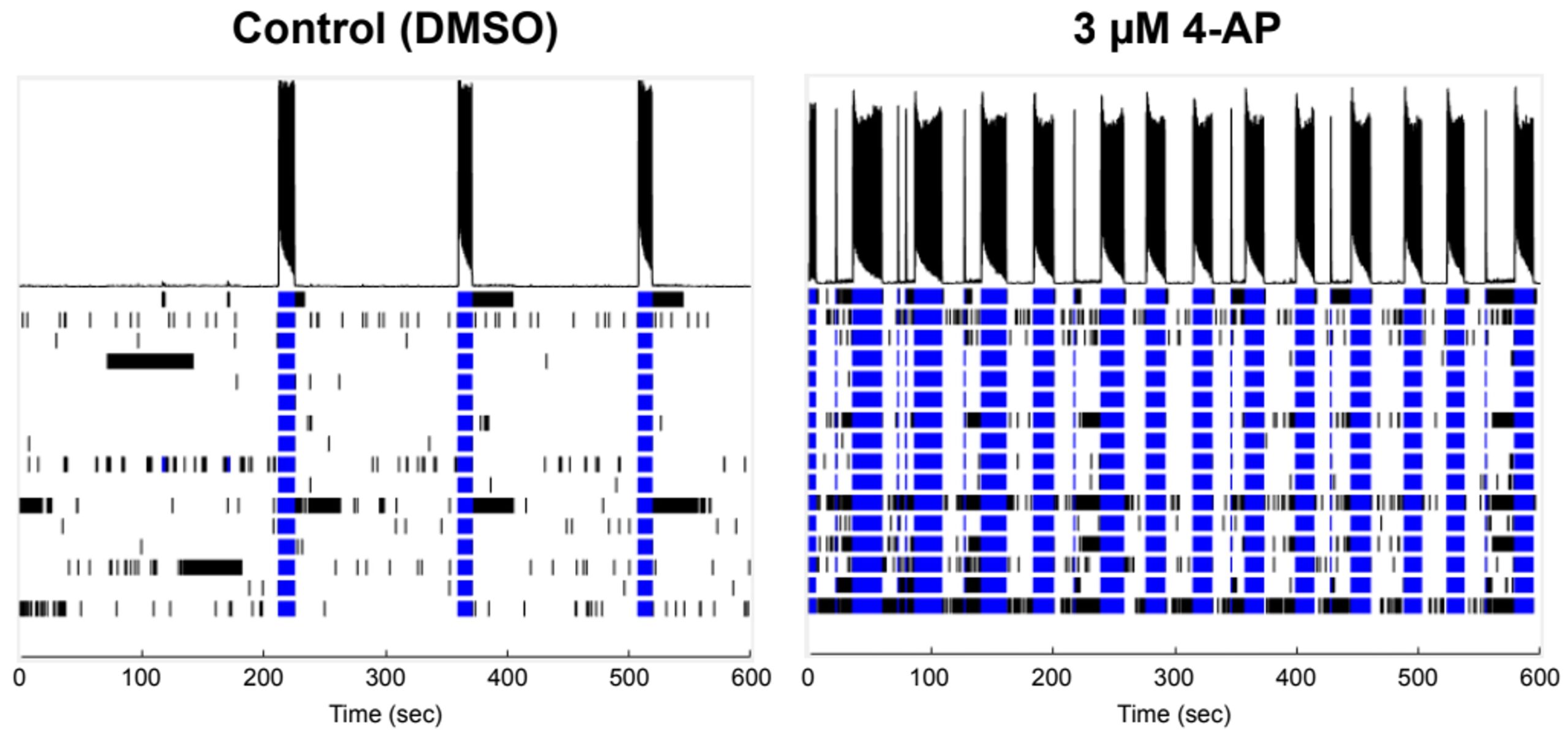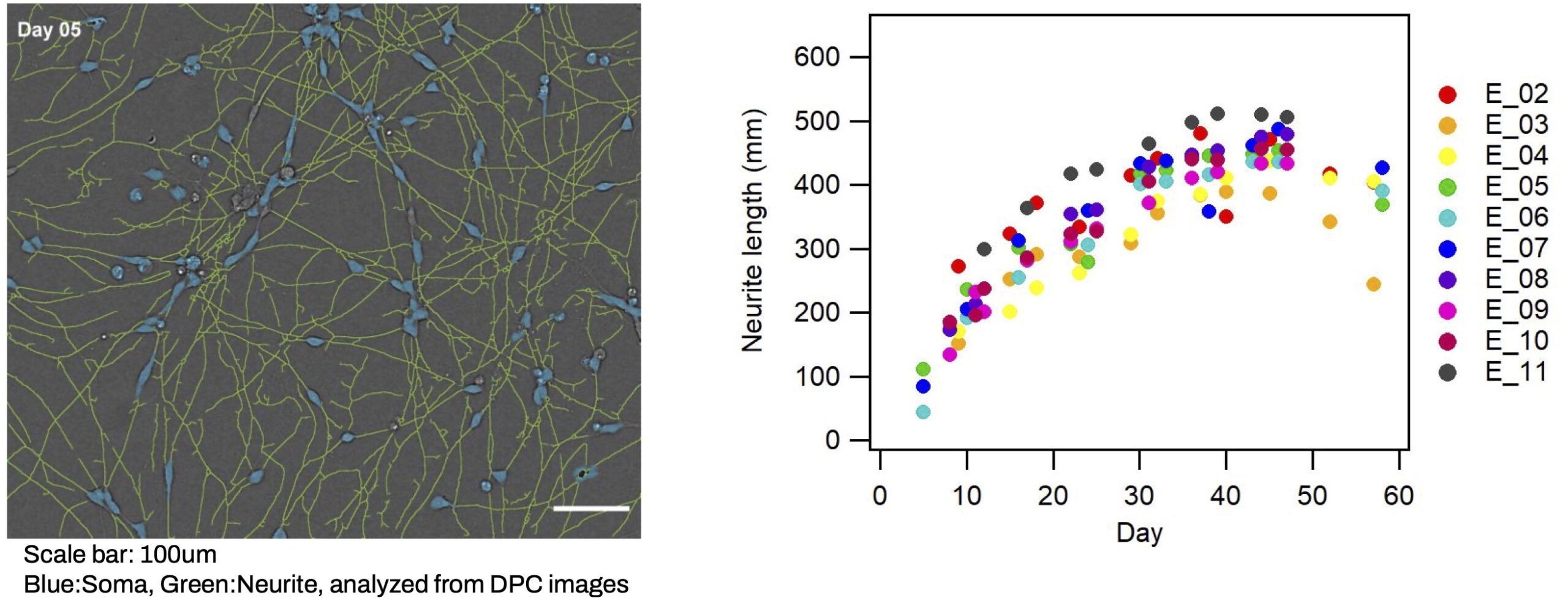Fast and easy iPSC differentiation enables more effective ways to model human biology and disease, opening the door to a wealth of applications.
Applications
Disease Models
Researchers have traditionally used non-human cells, such as mouse cells, for basic, translational, and applied research because of the lack of suitable human cell lines and/or the impossibility of obtaining primary cells from humans. But the advent of human iPS cells has changed this situation, as these pluripotent cells differentiate into essentially any type of cell in the human body. With the Quick-Tissue™ Series kits, human iPSC-derived cells can be generated quickly and easily in any lab, opening the door to more physiologically-relevant models for human biology and disease. Find out available iPSC lines from various cell banks. Learn more about on our service page. ALS patient derived neurons show clear phenotypes only in 10 days.

Alternative to Animal-based study
Animal testing will remain for most of commercial drug development. However, there is a trend to reduce animal use for testing compounds including new chemical compounds for non-therapeutic use including cosmetics and pesticides. Human models are now available and accessible. With advancement of holistic approach of electrophysiology study, multi-electrode array (MEA) and Ca flux assay enable researchers to assess drug/compound effect with variable parameters and complex statistics. Our Quick-Neuron™ Excitatory demonstrated how cells can be used at MEA to assess compound effects. Learn more from our application note.

High-content Imaging assay
With the ability to consistently differentiate variety of iPSC lines including healthy controls, disease patients, and gene-corrected lines, Elixirgen Scientific’s iPSC differentiation technology enables fast and robust human model-based studies with imaging. Researchers now can assess with multiple aspects on imaging such as neurite length measurement and live imaging with GFP integration. Find out more on our service page and our application note.

High-throughput Compound Screening
With the ability to produce virtually unlimited amounts of identical cells, Elixirgen Scientific’s iPSC differentiation technology enables more consistent, reproducible, and physiologically relevant high-throughput screening (HTS) than immortalized cell lines, and are more affordable and scalable than primary cells. In addition, the streamlined workflow is compatible with automated platforms, making the Quick-Tissue™ Series a perfect fit for efficient HTS operations.
3D Bioprinting
A rapidly growing area in the field of bioengineering, 3D bioprinting holds out the hope of replacing the need for organ transplants with the ability to “print” cells into complex, multicellular three-dimensional tissues. With a faster, easier workflow than any other technology on the market, Elixirgen Scientific’s Quick-Tissue™ cells and kits are the ideal reagents for 3D bioprinting. Our technology enables differentiation of iPSCs already printed onto the top of the scaffold, one of the most widely used techniques currently used in 3D bioprinting.
Tissue Chips
“Tissue Chips” and “organs-on-chips” are technologies being developed to provide a more humane and physiologically relevant method for testing the safety and efficacy of drug candidates than animal studies. Elixirgen Scientific’s Quick-Tissue™ Series kits are an excellent choice for this application thanks to the fast and streamlined differentiation workflow that can be performed directly on the chip.
Precision Medicine, Cell-based Therapies
Making targeted cell-based therapies a more widespread option will require research into ways to reduce the costs of generating custom, autologous cells. Elixirgen Scientific’s cells and kits accelerate these studies with our rapid, consistent, and efficient differentiation of patient-specific iPS cells into desired cell types.
Transplantation
One of the key paradigms of regenerative medicine is to differentiate human ES and iPS cells into desired cell types and transplant them into patients in need of these cells/tissue/organs. Examples include skeletal muscles for Muscular Dystrophy, dopaminergic neurons for Parkinson’s disease, pancreatic beta-cells for Diabetes, cardiomyocytes for heart failures and myocardial infarction. The technology used in the Quick-Tissue™ Series enables the development of these approaches through rapid, reliable, and consistent differentiation of desired cell types from human ES and iPS cells.
The Elixirgen Difference
Our team is committed to providing high quality products, services, and customer support. Our iPSC differentiation technology can be used in any lab. The workflows are easy to follow and deliver fast results in as little as 1-2 weeks. Our technology quickly generates cells and tissues from human iPS and ES cells.

